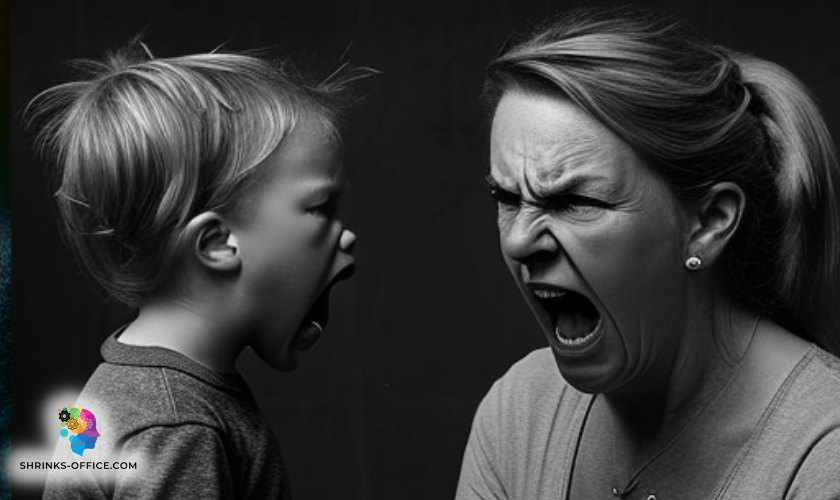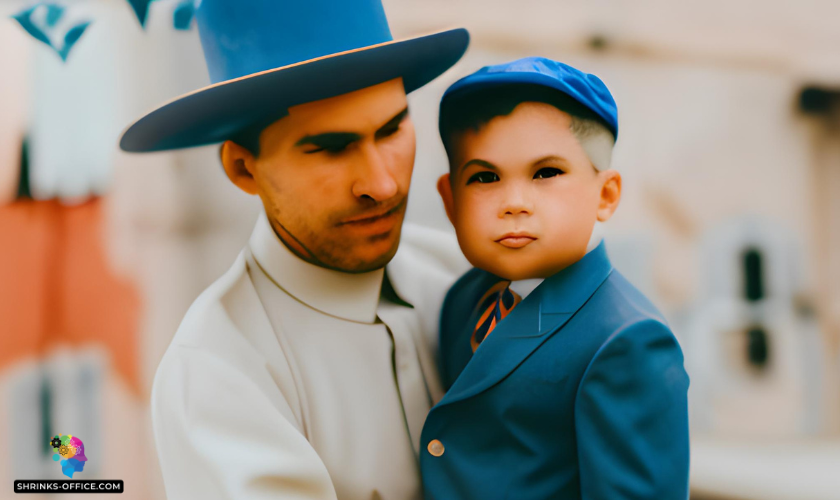Bionic reading transforms the reading experience for ADHD individuals by guiding the eyes for focus and understanding. Dive into the world of bionic reading.

Content Warning: The following article contains topics such as abuse, childhood trauma, and child neglect, among other potentially triggering topics. Read with discretion.
As teenagers and young adults navigate life and the challenging process of growing up, they may sometimes find themselves asking, "Why do my parents hate me?" It can be hard to cope when we feel like our parents don't love us, and of course, it's crucial to keep in mind that just because people tend we feel that way doesn't necessarily make it true.
In this blog post, we'll examine the reasons why someone might feel this way and we hope to provide practical tips on how to deal with these feelings.

Child abuse and neglect have devastating consequences on children's well-being. According to the Centers Of Disease Control and Prevention (CDC), in 2020, an estimated 1,750 children in the United States were victims of child abuse and neglect. [19]
Children who are abused or neglected are more likely to experience mental health problems, such as anxiety, depression, and post-traumatic stress disorder. [20] They are also more likely to have problems in school, such as low academic achievement and dropping out. [21] As adults, they are more likely to have problems with substance abuse, criminal behavior, and homelessness. [22] Understanding the roots of parental behavior can help prevent these adverse outcomes and promote healthier parent-child relationships.
To understand the roots of parental behavior, it's essential to consider how these patterns influence current parenting practices:
Remember: Feelings of parental hatred often stem from their struggles, especially with mentally ill parents. Remember, it's not your fault. Seek supportive resources and therapy to help navigate your emotions.
Societal expectations can greatly influence parenting styles and the ways in which parents interact with their children. These expectations can vary across cultures, communities, and even individual families. Here are some ways societal expectations can impact parenting:
Reflect on your childhood experiences and how they might be influencing your parenting style. Consider whether there are any patterns or behaviors you want to change.
Establish your values and beliefs about parenting, and create a parenting style that aligns with those principles. This will help you resist societal pressure and create a more authentic relationship with your child.
Seek support from others
Connect with other parents, join parenting groups, or attend workshops to learn different parenting techniques and gain new perspectives. This can help you make more informed decisions about your parenting approach.
Practice open communication
Encourage open and honest communication within your family. This can help break down barriers and prevent the perpetuation of unhealthy generational patterns.
Consider professional help
If you're struggling with breaking free from generational patterns or societal expectations, consider seeking the help of a therapist or counselor specializing in family dynamics. They can provide guidance and support to help you make positive changes in your parenting style.

Empathy plays a crucial role in fostering strong, supportive relationships between parents and children. By understanding each other's perspectives and developing emotional intelligence, families can build deeper connections and better navigate the challenges of parenting.
Understanding the experiences and motivations of your parents can help improve communication and create a more harmonious relationship. Here are some ways to see things from your parents' perspective:
Emotional intelligence is the ability to recognize, understand, and manage emotions in ourselves and others. Developing this skill is essential for building empathy in parent-child relationships. Here are some tips for enhancing emotional intelligence:
Interesting fact: Narcissistic mothers often project their insecurities onto their children, leading to feelings of being unloved. Recognizing this is key to understanding it's their issue, not a reflection of you.


Miscommunication or lack of communication can lead to misunderstandings and create the feeling that your parents don't care about you. If your parents don't understand what you're going through, for example, it may feel like they're not interested in listening and understanding. [1]
Some parents are stricter than others when it comes to enforcing rules and punishing bad behavior. If your parents are too harsh, you might feel like they don't love or care about you. [2]
Criticism is often necessary for personal growth, but if you have toxic parents that are overly critical of everything you do, it can make you feel like they hate you. [3]
Respect is a two-way street and if your parents don't show you respect, it can make you feel like they don't value you as an individual. [4]
Discipline is important, but if it's too strict or severe it can make you feel like your parents don't trust you. [5]
You may feel like your parents don't care about you if they are not showing you enough love and affection, which can make you feel isolated and alone. [6]
If one of your siblings is favored over the others it can cause jealousy and conflict in the extended family too. This situation can lead to feelings of inadequacy or resentment from those who are not favored.[7]
If your parents or other members have unrealistic expectations for the future for you, it can be difficult to please them and meet their standards. This can lead to feelings of frustration and helplessness as you try to live up to your parents and friends' set of impossible expectations. [8]
If family members do not communicate openly and effectively, it can be difficult to resolve conflicts and understand each other. Poor communication can also lead to feelings of distrust and alienation within the same family unit. [9]
Physical abuse can make kids fear their parents rather than trust them since it is traumatizing to be hit or hurt physically. Because it has become commonplace in various societies and generations, physical punishment is widely seen as harmful and is associated with poor developmental results. [10]
Similar to physical abuse, emotional abuse by parents harms a child's emotional growth and impairs their ability to have self-esteem and a positive self-image. As a result, their attachment to their relationship with their guardians suffers, which makes many kids fear that their caregivers disapprove of everything they do. [11]
Constantly being compared to others makes you feel like you are inadequate.
Despite your parents' expectations, you feel like you can never measure up to your sibling/cousin or achieve anything worth praise. [12]
Parents of children who have mental health problems will show it in their parenting. Even inadvertent coldness, dismissal, or strange and frightful acts can make kids feel unloved or unsafe. [13]
Childhood emotional neglect has been determined to be as detrimental as other types of neglect or abuse, despite the fact that for most parents its effects are difficult to notice. Many youngsters who are raised in emotionally negligent families experience feelings of emptiness or unwanted without ever fully knowing why. [14]
Many kids internalize it and put the blame on life and themselves when a parent is always absent due to employment, physical distance, or incarceration. They feel unlovable or hated since they don't understand their parent's absence in person. [15]
It can be much more distressing for a youngster when their trauma or abuse is denied by a parent or family members. The child will frequently internalize this as self-blame or self-hatred, believing that the family does not support or love them, for instance, if they are sexually abused or molested by a babysitter or another family member and the parent(s) do not believe them.
Helpful tip
For a child with reactive attachment disorder, consistent care, patience, and professional therapy are crucial. If a parental conflict exists, remember it's not a reflection of the child's worth.

Many young individuals believe that their parents must not like them if they punish them for breaking household rules. So, it's critical to keep in mind there's a difference between abuse and punishment.
Rules are put in place to keep kids safe and teach them responsibility when they are just and age-appropriate.
As difficult as it may be to consider, our parents frequently act in ways that are a result of their personal anxieties that drive them to their own actions and project their own emotional pain or fears onto their kids.
Some parents struggle to build ties with their children because of personal traumas or mental health issues, or they may have an attachment disorder.
A child can convey their final thoughts and feelings to their parents and communicate with them more effectively by using healthy communication techniques. This can be achieved by pausing before responding.
Using "I" statements could be as simple as saying, "I feel angry about what happened in this circumstance," or "I feel terrified when you yell." This may prevent your parents from being hostile.
If you are having difficulty communicating with your parents, it can be helpful to seek out support from a therapist or counselor. Talking to someone in a safe environment who is trained to assist people with such issues can provide the guidance needed to improve communication and help build healthy connections and relationships with your parents.
Even if you realize you don't have a good relationship with your parents, it is important to try and reach out and spend time with them. This could mean going out for breakfast or coffee or simply offering to help them with tasks around the house. Showing that you care and are willing to invest in the relationship can often be enough to start bridging the gap between you and your parents.
If you have an issue with your parents, it is important to approach the matter with them directly. Being passive-aggressive or avoiding the topic will only add to the tension and make it harder for both of you to reach a point of resolution.
When addressing issues, be sure to come from a place of understanding and respect in order to ensure that both parties are heard. Also, ensure that you're open to compromise.
It can be difficult to manage the stress that comes when dealing with parental conflict. One way to reduce your stress is by finding an outlet such as exercising, writing, spending time alone, or talking to a trusted adult friend or family member. Taking some time away from the situation can help you gain perspective and handle it more effectively.
If communication is difficult or emotions run high, it might be helpful to set boundaries for communication. This could mean deciding on certain times of the day when you will talk about the issue or establishing ground rules for how each person should behave during the conversation. [17]
Sometimes parental conflict can become too intense to handle without outside help. A therapist or family counselor can provide guidance and emotional support to help you navigate the situation in a healthy way.
They say online therapy may also be able to offer strategies for communication, such as active listening and assertive expression therapy, and other factors that can reduce conflict and foster understanding between parents.
foster understanding between parents. We would recommend trying OnlineTherapy.com. [18]

Developing trust and mutual respect is fundamental to building healthy parent-child relationships. Honesty, transparency, and open communication are key ingredients for cultivating these vital elements. In this section, we'll explore the role of honesty and transparency in building trust, as well as how to show respect and expect it in return.
Trust is the foundation of any strong relationship. Honesty and transparency play crucial roles in establishing trust between parents and their children. Here's how they contribute:
Mutual respect is essential for maintaining a healthy parent-child relationship. Both parties must demonstrate respect for each other's feelings, opinions, and boundaries. Here's how to show respect and expect it in return:

It can be difficult as a child to feel like your parents don't love you, or in this case, feel like they hate you. However, it's important to remember that they most likely aren't letting out their dislike for you in the way they intended. Attempting to nurture a strong and loving connection with your parents is not only beneficial for the relationship between you both but also for your own mental health.
To learn more about disciplining children with reactive attachment disorder and fostering emotional connections, read Fostering Emotional Connection: How To Discipline A Child With Reactive Attachment Disorder. The journey to having a better relationship with your parents won't be easy but with understanding and patience from both sides, it is certainly possible. All relationships take work and effort, so don't give up on yours just yet.
Some strategies for managing parental conflict include setting aside specific times to discuss the issue, establishing ground rules for how each person should behave during conversations, and seeking out professional help if needed.
It is possible to resolve issues between parents without outside help, but it can be challenging. If the conflict has become entrenched and damaging to family relationships, it may be helpful to seek assistance from a qualified therapist or counselor who can provide guidance and tools for communication that can help both parties find common ground.
Bionic reading transforms the reading experience for ADHD individuals by guiding the eyes for focus and understanding. Dive into the world of bionic reading.
Find the best shopping addiction workbooks to guide your journey to recovery, offering structured programs, practical tools, and empowering strategies.
Discover the best verbal abuse books for understanding, coping, and healing from this damaging behavior, offering expert guidance and support.
Explore our curated list of the best books on bullying, offering insights and strategies to understand, prevent, and address bullying effectively.
Bionic reading transforms the reading experience for ADHD individuals by guiding the eyes for focus and understanding. Dive into the world of bionic reading.
Explore the complexities of postpartum depression and genetics in our blog 'Is Postpartum Depression Hereditary?' for insights into maternal mental health.
Explore 'Trauma Responses in Relationships' and learn to navigate emotional challenges in intimate partnerships for stronger, healthier connections.
